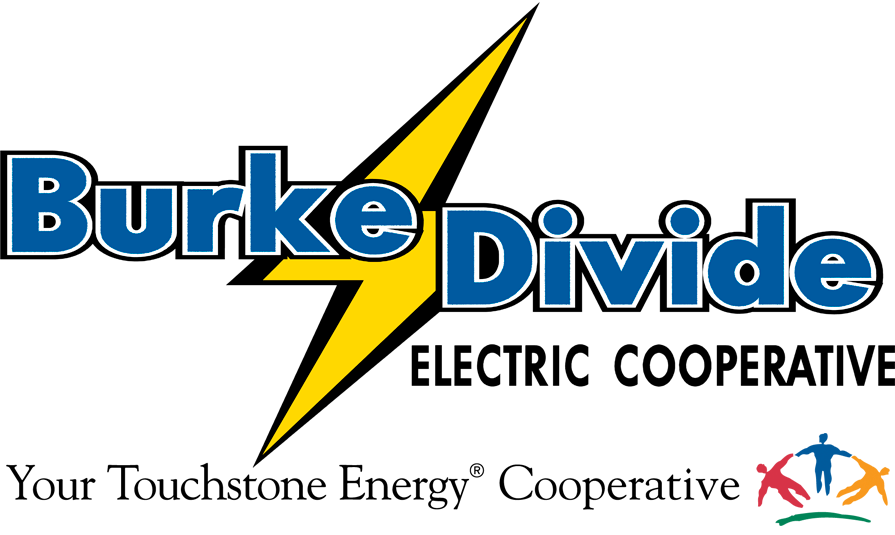Overhead power lines are necessary to deliver electricity to our hardworking members; however, those same power lines can also be deadly if not treated with respect. Burke-Divide Electric Cooperative urges you to watch for electrical hazards around your home or business.
BE AWARE
- Be aware of overhead power lines and keep equipment and extensions far away from them.
- Always keep equipment at least 10 feet away from power lines on all sides. Field cultivators and sprayers can often reach as high as 12 feet in the air.
- Use care when raising augers or the bed of a grain truck. It can be difficult to estimate distance, and a power line may be closer than it looks.
- Always lower equipment extensions, portable augers or elevators to their lowest possible level before moving or transporting them.
USE A SPOTTER
- Avoid moving large equipment alone. Have someone watch as you move equipment to ensure you are clear of power lines.
- When raising or lowering equipment, it is difficult to estimate distance, too. Use a spotter to make certain you stay far away from power lines.
REALIZE THINGS CHANGE
- If you have purchased new equipment, be aware of antennas or other attachments that may pose new hazards. A newer, bigger piece of equipment may no longer clear a line. In addition, shifting soil may also affect whether or not machinery avoids power lines from year-to-year.
- Wind, uneven ground, shifting weight or other conditions can cause you to lose control of equipment and make contact with power lines.
- Power lines also may sag over the years. If power lines on your property are sagging, contact your electric cooperative to repair the lines. Never try to move a power line on your own.
EDUCATE THE CREW
- Look over work areas carefully for overhead power lines and utility poles. Make sure you, your family and employees know the location of overhead power lines, and use routes to avoid the lines when moving equipment. Do this every year, as equipment sizes and soil conditions may change.
- For spotters, learn the same language. To enhance communication and promote farm safety, the American Society of Agriculture and Biological Engineers developed 11 universal hand signals.
LOOK AROUND, TOO
- Overhead power lines are not the only electric hazard on the farm. Pole guy wires, used to stabilize utility poles, are grounded. However, when one of the guy wires is broken, it can become charged with electricity. If you break a guy wire, call the cooperative to fix it. Don’t do it yourself.
KNOW WHAT'S BELOW
- Power lines may also be buried underground. If you are planning a project that requires digging, remember to call 8-1-1 at least 72 hours before you plan to begin.
USE THE PROFESSIONALS
- Use qualified electricians for work on electrical systems.
